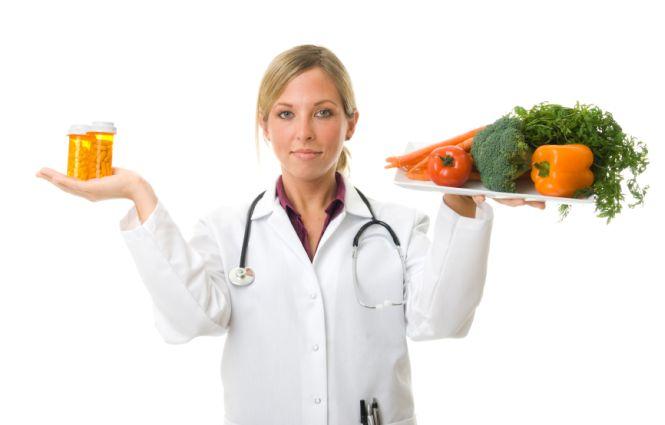Diet in peptic ulcer disease guidelines :
Loss of gastric and duodenal ulcers are called peptic ulcer disease. If pain occurs about 30 minutes after eating - we have mostly to do with gastric ulcer, if 1-3 hours after eating, at night or in the morning - with duodenal ulcers. These are the most common gastrointestinal disorders in the world. It usually appears in people aged 25-55 years, males are suffering three times more often than women. A characteristic feature of this disease, especially duodenal ulcers, is the dependence on time of year - worsening of symptoms is usually seen in spring and autumn.
|
|
|
The development of peptic ulcer disease are more likely to cigarette smokers, non-steroidal anti-inflammatory drug users (e.g. aspirin), alcohol drinkers, those living under stress and those whose relatives also suffer from this disease (genetic). Irregular eating also pressures . Over 95% of cases of duodenal ulcers and about 70% of gastric ulcers is closely associated with Helicobacter pylori infection - a bacterium which destroys the protective layer of mucus, which leads to inflammation of a chronic, which may last for years, causing ulcers. Peptic ulcer disease is treated with medications and proper diet. Currently, a prevailing view is that a restrictive diet is needed only during exacerbations, and when they disappear, you can return to normal diet, excluding those products that cause discomfort on the part of the digestive tract (bloating, abdominal pain).
The main principles of the diet
? Your diet should be nutritious. Particularly important is the proper amount of protein, minerals and vitamins, especially during the severity of symptoms.
? Eat meals in small portions every 2-3 hours. This is important during exacerbations of the disease, because prevents overflow of the stomach, allowing rapid healing of the ulcer.
? Remember to crush food product. Grinding or rubbing helps digestion.
? Avoid frying foods and eating meat broths. Cause excessive secretion of gastric juice. The best part is cooking, particularly steaming, roasting in the foil, stewing without frying.
? Replace fresh vegetables and fruits with fruit and vegetable juices. This applies particularly to the period of acute illness in which the right amount of vitamins and minerals should be provided.
? Eliminate from the diet hard to digest products. Cause abdominal pain, bloating and heartburn. These include the legumes, cabbage, dark breads, smoked meats, smoked fish, unripe fruit.
? Do not eat too hot food. This may cause congestion of the mucosa of the stomach, so food and drink should have a moderate temperature.
? Limit the amount of spices in your meals. This applies especially to all the sharp spices such as pepper, paprika, mustard, mustard, chili, curry. Vinegar and products containing it, such as pickles, pickled mushrooms are also inadvisable. But there are recommended mild spices (fennel, vanilla, lemon juice, cumin), does not stimulate gastric acid secretion.
? In the period of remission (resolution of symptoms), do not forget to frequently and regularly eat varied food. Dishes should be small, eaten in a state of relaxation, slow (you have to chew thoroughly, at least 20 times), the set time, and the last light meal - just before bedtime.
? Avoid stimulants. Coffee and strong tea strongly stimulate gastric acid secretion. This also applies to alcohol, which further irritates the stomach lining, and tobacco - reduces the blood supply to the mucosal lining of the stomach and duodenum.














